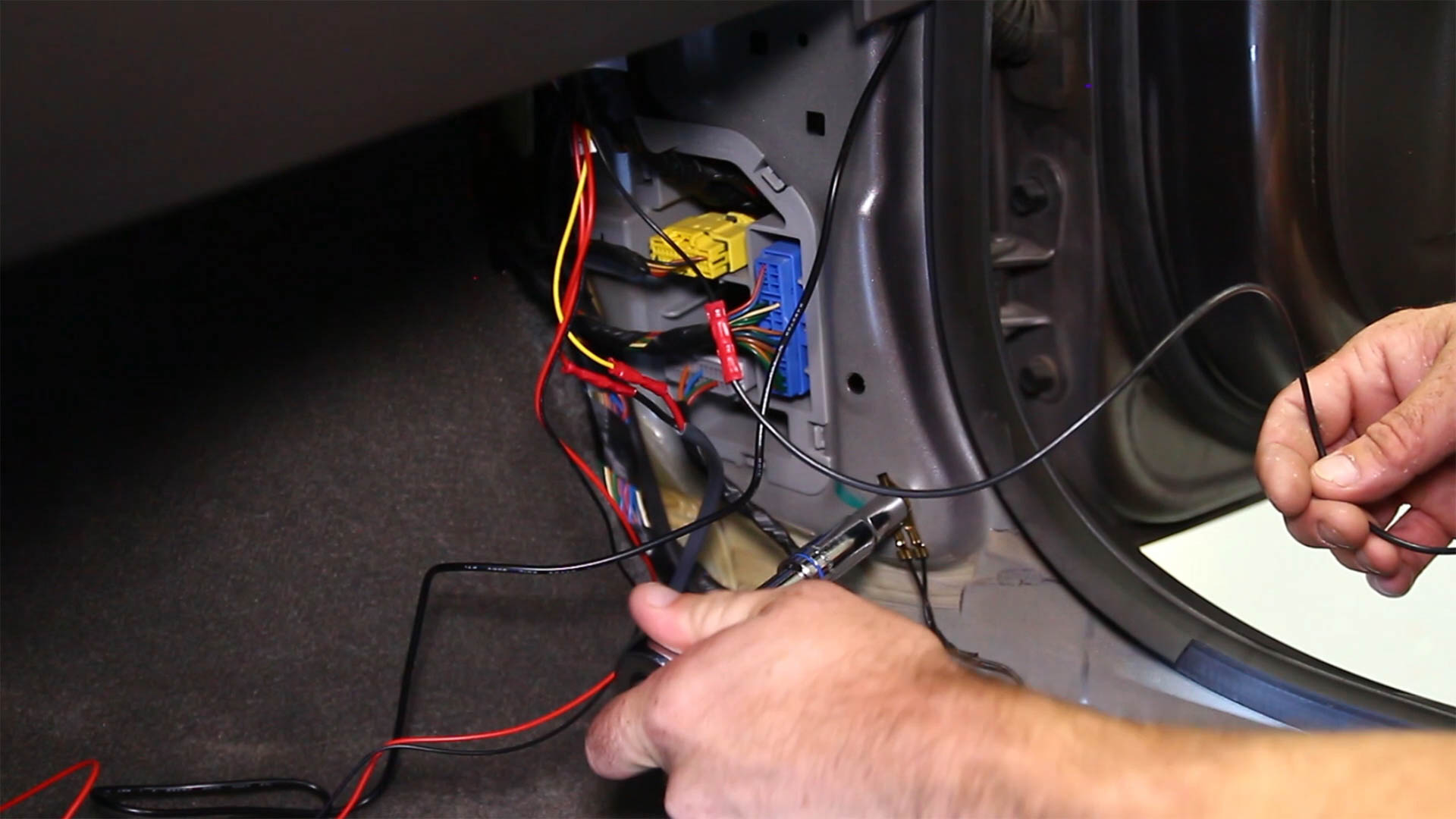Are you experiencing electrical issues with your car? Dimmed lights, faulty sensors, or hard starting could all be signs of a bad ground wire. But how can you determine if the grounding is the root cause of these problems?

Credit: www.onallcylinders.com
What is a Ground Wire?
Before we dive into how to find a bad ground wire, let’s understand the concept of a ground wire. In a car’s electrical system, the ground wire provides a pathway for electrical current to return to the battery. It ensures that the current flows smoothly and prevents any potential electrical issues.
Symptoms of a Bad Ground Wire
There are several symptoms that can indicate a bad ground wire in your car:
- Dimmed lights
- Faulty sensors
- Hard starting
- Intermittent electrical issues
- Electrical component failures

Credit: www.thedashcamstore.com
How to Find a Bad Ground Wire
Now that you know the potential signs of a bad ground wire, let’s discuss how you can locate the problem.
1. Check For Physical Signs
The first step is to visually inspect your car for any physical signs of a bad ground wire. Look for the following:
- Any metal components or surfaces with signs of rust
- Battery corrosion
- Loose or disconnected wires
2. Inspect The Ground Connections
Check the engine ground strap, which connects the engine to the chassis. Look for any signs of rust or corrosion on this connection. Additionally, inspect the computer ground connection for any signs of rust or damage.
3. Use A Multimeter
To further diagnose the issue, you can use a digital multimeter to test the resistance of the ground wire. Follow these steps:
- Turn off your car and disconnect the negative terminal of the battery.
- Set the multimeter to the ohmmeter function (measuring resistance in ohms).
- Connect one end of the multimeter to a known good ground, such as the negative terminal of the battery.
- Connect the other end of the multimeter to different parts of the car’s frame.
- If the multimeter shows a low resistance value (close to zero), the ground wire is intact and functioning properly. If the resistance is high, there may be a bad ground connection.
4. Locate The Faulty Ground Wire
Once you have determined that there is a bad ground connection, you’ll need to locate the specific wire causing the issue. This can be a bit more challenging, as it requires checking each individual ground wire in the car’s electrical system.
A helpful tip is to run a wire from a known good ground, such as the battery’s negative post, to the device that needs to be grounded. If connecting the wire improves the device’s performance, you have found the faulty ground wire.
In Summary
Having a properly functioning ground wire is essential for the overall electrical health of your car. If you are experiencing any of the symptoms mentioned earlier, it’s worth checking the ground wire as a potential culprit.
Remember to visually inspect the car for physical signs of a bad ground, check the ground connections, use a multimeter to test the resistance, and locate the faulty ground wire if necessary.
By following these steps, you can diagnose and address any bad ground wire issues, keeping your car’s electrical system running smoothly.
Frequently Asked Questions For How To Find A Bad Ground Wire On Your Car
How Do You Check For Bad Ground On A Car?
To check for a bad ground on a car, connect one end of a lead to a known good ground like the body, engine, or battery, and the other end where the existing ground meets the lamp socket. If the light improves, there is a bad ground.
Use an ohmmeter to test for ground faults by measuring resistance. A low resistance indicates a possible ground fault. Use a digital multimeter to test the ground wire by connecting one lead to the negative end of the battery and the other to different parts of the car’s frame.
A reading close to zero means the ground wire is good.
How Do I Know If My Ground Wire Is Bad?
To check if your ground wire is bad, inspect for any metal surfaces with rust, battery corrosion, or loose wires. Check the engine ground strap and look for any signs of rust or damage. Additionally, check for a rusted computer ground.
If you notice any of these issues, it may indicate a bad ground wire. An easy way to test for a bad ground is by connecting a lead from a known good ground to where the existing ground meets the lamp socket.
If this improves the light, it suggests a bad ground.
How Do You Find A Ground Wire Fault?
To find a ground wire fault, check for any metal components or surfaces with rust, battery corrosion, or loose wires. Also, inspect the engine ground strap or computer ground for rust. To test for ground faults, use the ohmmeter function of a multimeter.
A low resistance indicates a possible ground fault, while high resistance indicates good insulation.
How Do You Find A Short To Ground Car?
To find a short to ground in a car, check for metal components/surfaces, rust, loose wires, engine ground strap, and rusted computer ground. Use an ohmmeter to test for ground faults by measuring resistance. Another way is to use a digital multimeter and connect one lead to the negative end of the battery while testing different parts of the car’s frame.
How Do You Check For A Bad Ground Wire On A Car?
To check for a bad ground wire, connect one end of the lead to a known good ground like the body or the engine, and the other end to where the existing ground meets the lamp socket. If the light improves, you have a bad ground.
How Do I Know If My Ground Wire Is Bad?
You can tell if your ground wire is bad if you experience electrical issues like flickering lights, malfunctioning electronics, or circuits that don’t work. Testing the ground wire with an ohmmeter can confirm if there is a ground fault.





